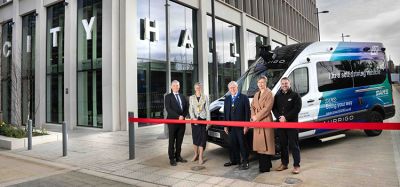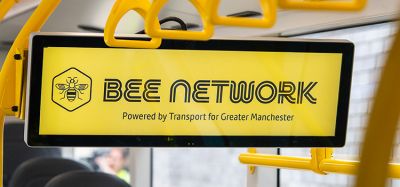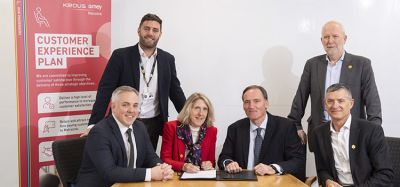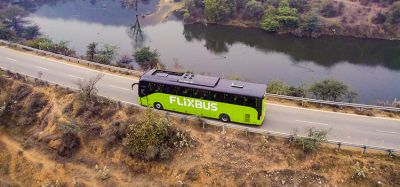Barcelona unveils two new electric buses and a rapid-charging station
- Like
- Digg
- Del
- Tumblr
- VKontakte
- Buffer
- Love This
- Odnoklassniki
- Meneame
- Blogger
- Amazon
- Yahoo Mail
- Gmail
- AOL
- Newsvine
- HackerNews
- Evernote
- MySpace
- Mail.ru
- Viadeo
- Line
- Comments
- Yummly
- SMS
- Viber
- Telegram
- Subscribe
- Skype
- Facebook Messenger
- Kakao
- LiveJournal
- Yammer
- Edgar
- Fintel
- Mix
- Instapaper
- Copy Link
Posted: 21 September 2016 | Katie Sadler, Digital Content Producer, Intelligent Transport | No comments yet
Barcelona has welcomed two new electric articulated buses and a rapid-charging station within the framework of project ZeEUS.
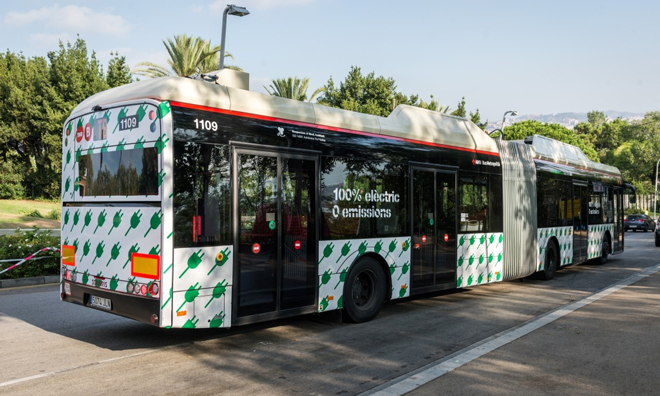

Barcelona has welcomed two new electric articulated buses and a rapid-charging station within the framework of project ZeEUS.
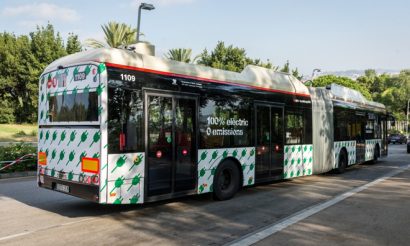

Image: TMB
Two articulated Solaris Urbino E18 buses have entered service in Barcelona thanks to funding from the European Union’s project ZeEUS. In addition to the zero-emission buses, an Endesa built en route charging station has been installed on the Zona Franca, near the end of bus route H16 where these buses will be serving.
Project ZeEUS is currently looking at innovation in clean technologies relating to public transport. As part of this research project, operator Transports Metropolitans de Barcelona (TMB) has been trialling the system in partnership with manufacturers Irizar and Solaris and in collaboration with Enide, Polytechnic University of Catalonia, Idiada and GMV.
Electric buses and a rapid-charging station funded by project ZeEUS
In 2014, tests were conducted on two 12-metre Irizar i2e buses (equipped with overnight rechargeable batteries) that regularly served TMB routes 20 and 34 and participated in a large number of outreach social campaigns about the environmental benefits of electrification of public transport.
Barcelona’s latest participation in project ZeEUS involves the use of two buses of different sizes and technologies. Built in Poland by Solaris, these two 18-metre articulated buses, with a capacity of 110 passengers, are powered by 270 kW electric motors and equipped with three two-speed batteries -slow charging at the garage and rapid charging en route. As a result, the bus is able to perform well with smaller batteries (120 kWh) and less weight, which makes it more efficient.
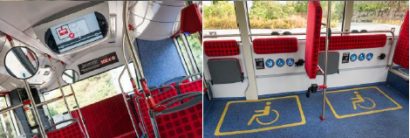

Image: TMB
The Solaris Urbino E18 buses have been designed to meet the usual operability requirements: 16 continuous hours at full load with air conditioning on during summer months and the usual comfort features for passengers (low platform, 37 seats, two spaces for disabled passengers, ramp, on-board information systems, USB sockets to charge mobile devices…). Like all articulated buses purchased since 2015, these units have four doors, which allows for loading passengers through the two at front.
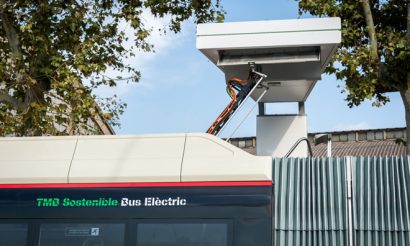

Image: TMB
The technological innovation of this second round of testing is the charging system of the buses. It consists of a retractable pantograph located at the top of the body. This system, also known as an Opportunity Charging System, allows to fill up to 80 percent of the vehicle’s battery, which always remains above 40 percent, within 5 to 8 minutes thanks to the 400 kW charging power of the charger. Furthermore, it feeds Endesa’s control centre with data, which is shared with the Regulation and Operations Center. Such data allows real-time activity monitoring of the charger and informs of the status of the connected vehicle.
Both the buses and the rapid-charging system are now entering a trial period. TMB expects both to enter full operation on route H16 by November this year.
In addition, TMB will build a second rapid-charging station at the Fòrum, which will complete the power supply of two buses whilst en route.
Related topics
Alternative Power, Fleet Management & Maintenance
Related cities
Spain
Related organisations
TMB (Transports Metropolitans de Barcelona)




